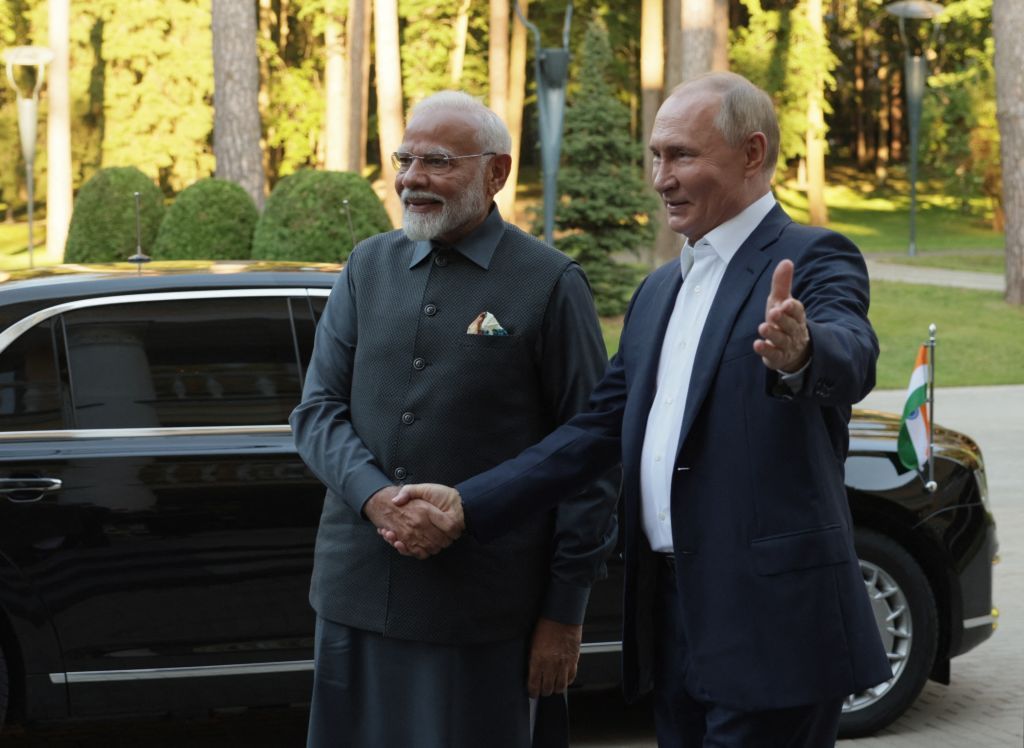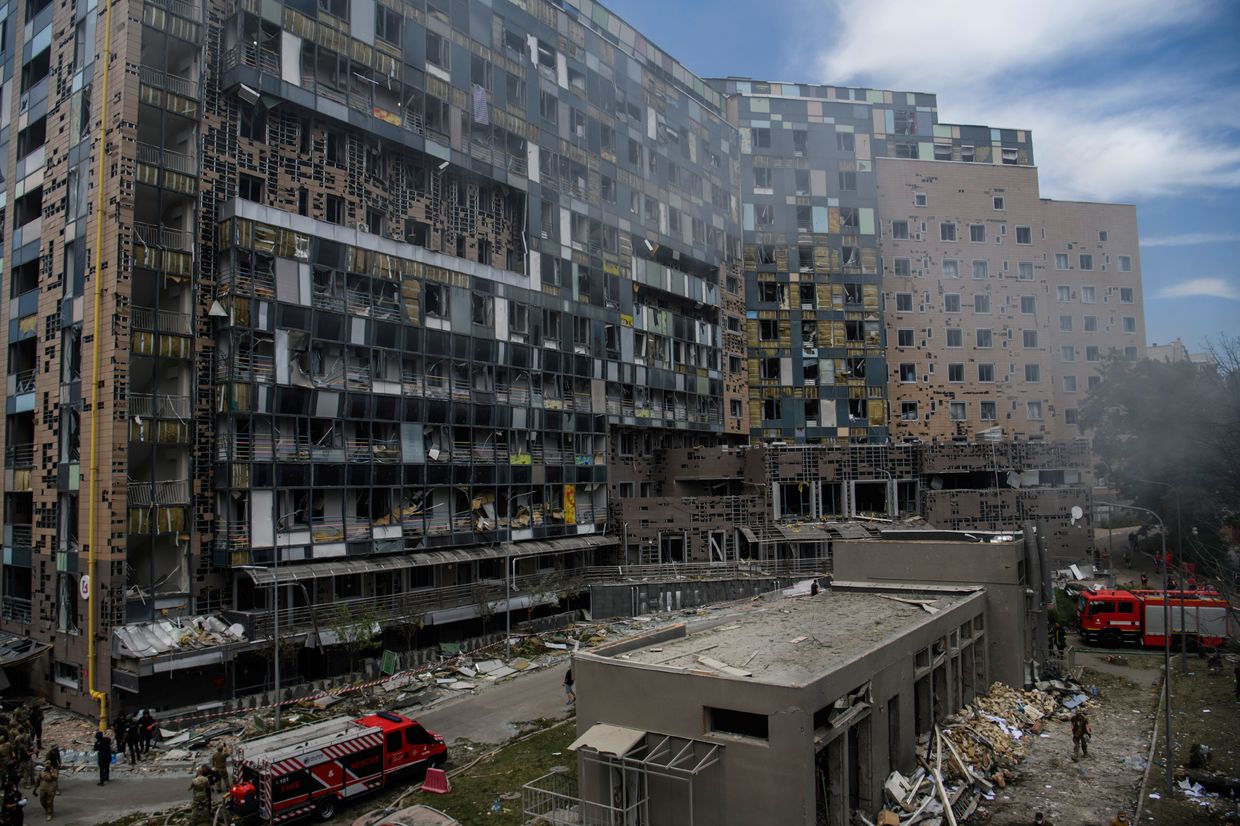Opinion: The global implications of Iran's election

Then-presidential candidate Massoud Pezeshkian casts his vote for the 2024 Iranian presidential election at a polling station in Tehran, Iran, on June 28, 2024. (Majid Saeedi/Getty Images)

Ana Palacio
Former Spanish foreign affairs minister
The second round of Iran’s presidential election unfolded with little fanfare last weekend. But with reformist candidate Masoud Pezeshkian defeating his hardline anti-Western opponent, Saeed Jalili, the world should be paying attention. At a time of deep tensions and shifting alliances, these results will reverberate across the region and beyond.
The election’s backdrop was messy, to say the least. The death of Iran’s last president, the hardline Ebrahim Raisi, in a helicopter crash in May, together with the lack of any obvious successor, exacerbated deep internal fissures in a country already shaken by popular protests. Bowing to intense public pressure, Iran’s Guardian Council permitted the moderate Pezeshkian to run, despite attempts by Supreme Leader Ayatollah Ali Khamenei to undermine his candidacy. Iranians had mostly boycotted the first round. Whether out of anger, apathy, or resignation, less than 50% showed up for the run-off.
The regional landscape is similarly muddled. Iran’s foreign policy is shaped by conflicting impulses. On one hand, Iran’s leaders desire a semblance of regional stability, both to ease the political transition and to help the country cope with crippling Western sanctions. On the other hand, Iran remains committed to the so-called Axis of Resistance, a loose network of opportunistic actors – including Hezbollah in Lebanon, the Houthis in Yemen, and Hamas in Gaza – dedicated to eliminating Israel, expelling the United States from the Middle East, and upending the U.S.-led world order.
This tension was apparent in the careful dance that Iran, Hezbollah, and Israel were engaged in for months following the launch of Israel’s invasion of Gaza. But Israeli Prime Minister Binyamin Netanyahu’s announcement last month that he plans to scale down operations in Gaza and redeploy troops toward the Lebanese border has tilted the scales toward conflict, as evidenced by a surge in rocket attacks on Israel.
The Middle East has never been a paragon of stability. But it did, until recently, appear to be progressing toward a somewhat more stable status quo. Under the Abraham Accords (led by the White House in 2020), Israel normalized ties with some Arab states, including the United Arab Emirates and Bahrain. This helped to convince the U.S. that it could afford to shift its focus away from the Middle East to other foreign-policy priorities, especially containment of China and then, since 2022, supporting Ukraine’s defense against Russia’s full-scale invasion. But Israel’s war on Hamas upended the incipient new status quo, fueling clashes across the region.
Last year, Iran also restored diplomatic relations with a number of Arab states, beginning with Saudi Arabia. This détente, however, was brokered by China, which has maintained strong ties with Iran ever since. Iran’s oil sales to China are now generating $150 million per day for the Islamic Republic.

Iran maintains similarly close ties with Russia, which shares its goal of countering Western global dominance. Beyond openly supporting Russia in its war against Ukraine, Iran is helping Russia evade Western sanctions, especially in hydrocarbon and financial transactions. Following Raisi’s death, Russian President Vladimir Putin declared, in a condolence letter to Khamenei, that he would “forever remember” Raisi as “the most wonderful person.”
Meanwhile, Iran has been taking advantage of the international community’s preoccupation with Ukraine, Gaza, and electoral dramas in Europe and Washington to advance its nuclear program. Though it does not seem to be developing nuclear weapons for now, it has already acquired many of the capabilities it needs to do so, and the risk of proliferation is acute. If the Axis of Resistance has enabled Iran to project power with some measure of impunity, nuclear weapons would allow it to pose a credible threat to the existing world order.
The presidential election may have helped to mitigate this risk – to a point. Pezeshkian has advocated a more balanced foreign policy and a revival of nuclear diplomacy. This stance has won him the support of former Foreign Minister Mohammad Javad Zarif, who led negotiations for the now-defunct 2015 Joint Comprehensive Plan of Action, which placed significant limits on Iran’s nuclear program.
But not even Pezeshkian is likely to assume the political risk of pursuing any kind of rapprochement with the U.S., especially given the increasingly salient prospect that Donald Trump – who abandoned the Iran nuclear deal in 2018 – will soon return to the White House. The chances that Iran’s next president would attempt to forge a new nuclear deal with the international community are practically nonexistent.
For now, Iran might decide to remain a permanent nuclear-threshold state, threatening to arm itself at any provocation. But it could soon decide to make good on that threat and build a nuclear-weapons arsenal. The risk of a wider war in the Middle East – triggered, for example, by Israel – is also rising. In attempting to navigate these risky dynamics, the West must engage in new and creative thinking, rather than sticking to the same old strategies. Time is on the mullahs’ side.
A Pezeshkian win might not spell the end of the Axis of Resistance or its efforts to topple the Western-led world order, not least because the president’s ability to shape Iran’s foreign policy is limited. But it could provide an opening to erode the grouping’s cohesion. The problem is that taking advantage of that opening will require a coherent approach, which the West is poorly positioned to devise at the moment.
Editor’s Note: Copyright, Project Syndicate. This article was published by Project Syndicate on July 5, 2024, and has been republished by the Kyiv Independent with permission.The opinions expressed in the op-ed section are those of the authors and do not purport to reflect the views of the Kyiv Independent.












